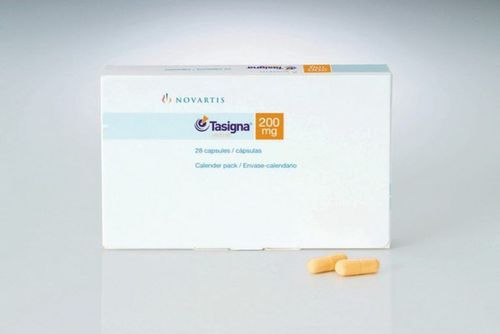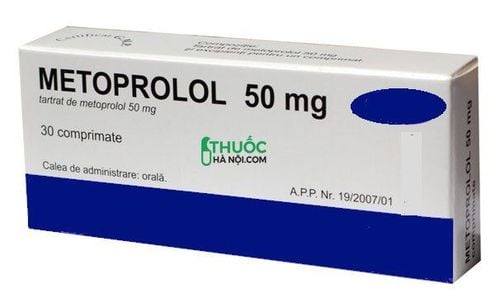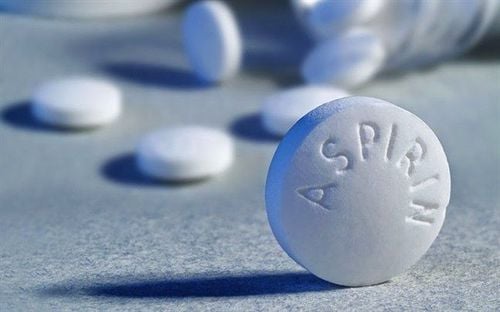This is an automatically translated article.
The article is professionally consulted by Master, Doctor Bui Tien Dat - Emergency Medicine - Cardiology - Emergency Resuscitation Department - Vinmec Hai Phong International General Hospital. The doctor has more than 12 years of experience in the field of emergency resuscitation - cardiology.Myocardial infarction is one of the leading causes of death in the group of diseases in general and cardiovascular diseases in particular. This is a dangerous disease with many potential risk factors, but it has not been properly cared for and prevented.
Myocardial infarction is a dangerous disease caused by blockage of one or more branches of the coronary arteries that nourish the heart muscle. The heart muscle is not supplied with enough blood and gradually necrosis, causing symptoms of severe chest pain for the patient. If not treated promptly, the necrotic part of the heart muscle will scar after several weeks and increase the risk of heart failure complications.
1. Signs of a heart attack
The signs of a heart attack are often confused or overlooked and are therefore also symptoms of many other conditions. Here are the signs to help identify a possible heart attack:1.1 Typical angina Pain like squeezing behind the sternum or slightly to the left, radiating to the left shoulder and the inside of the left hand down to the ring and little fingers. In general, the pain is similar to angina but lasts more than 20 minutes and is not relieved with nitroglycerin. In some cases, pain may radiate to the neck, chin, shoulder, back, right hand, or epigastrium. Some cases of MI can occur without the patient feeling pain (silent MI), common in postoperative patients, the elderly, patients with diabetes or hypertension. In the case of severe pain radiating to the back, it must be distinguished from aortic dissection. 1.2 Other symptoms Other symptoms may be: sweating, shortness of breath, palpitations, vomiting or nausea, confusion... Symptoms of digestive disorders are common in case posterior inferior MI.
1.3 Sudden death Sudden death is also one of the common consequences of acute MI.
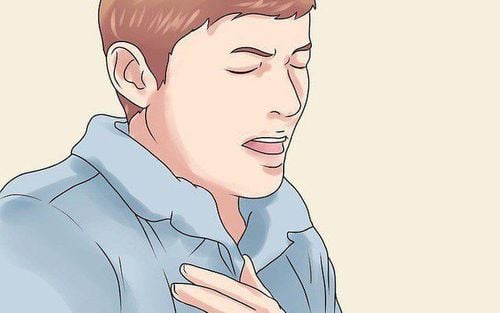
2. What to do when you notice signs of a heart attack?
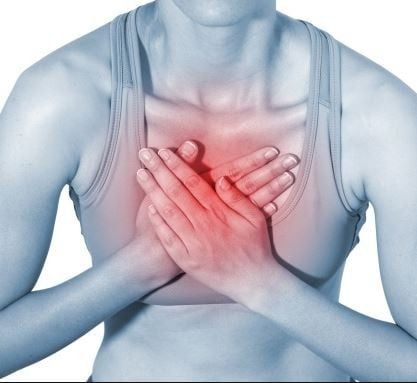
For patients with confirmed myocardial infarction, intensive treatment is required at emergency units. cardiology research. The prerequisite for the treatment of heart attacks is to race against time, to quickly clear the blocked blood vessel as soon as possible.
To protect cardiovascular health in general and detect early signs of myocardial infarction and stroke, customers can sign up for Cardiovascular Screening Package - Basic Cardiovascular Examination of Vinmec International General Hospital . The examination package helps to detect cardiovascular problems at the earliest through tests and modern imaging methods. The package is for all ages, genders and is especially essential for people with risk factors for cardiovascular disease.
Please dial HOTLINE for more information or register for an appointment HERE. Download MyVinmec app to make appointments faster and to manage your bookings easily.
SEE ALSOWhat should heart attack patients eat? Warning risk of stroke, heart attack in cold weather Predict risk of heart attack or stroke in the next 10 years








